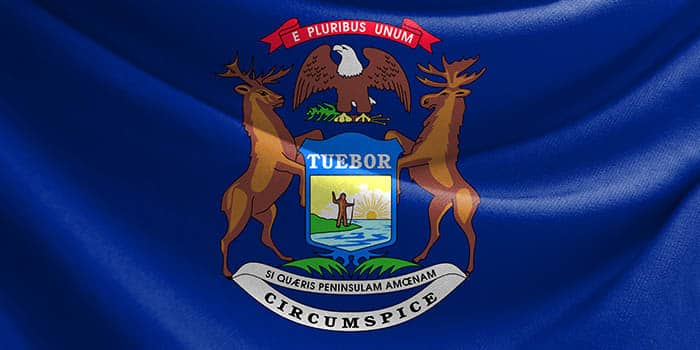- Casino
- By State
- Alabama
- Alaska
- Arizona
- Arkansas
- California
- Colorado
- Connecticut
- Delaware
- Georgia
- Florida
- Hawaii
- Idaho
- Illinois
- Indiana
- Iowa
- Kansas
- Kentucky
- Louisiana
- Maine
- Massachusetts
- Maryland
- Michigan
- Minnesota
- Mississippi
- Missouri
- Montana
- Nebraska
- Nevada
- New Hampshire
- New Jersey
- New Mexico
- New York
- North Carolina
- North Dakota
- Ohio
- Oklahoma
- Oregon
- Pennsylvania
- Rhode Island
- South Carolina
- South Dakota
- Tennessee
- Texas
- Utah
- Vermont
- Virginia
- Washington
- West Virginia
- Wisconsin
- Wyoming
- By State
- Slots
- Poker
- Sports
- Esports
Gambling News Roundtable: Suppliers on Why Data Is More Important Than Ever in Product Development

The online gambling industry is by its very nature fortunate to be able to collect a lot of player data that can be used to improve product development. But with technology quickly evolving, is the industry optimizing the use of their data and what can we expect to see in the future from suppliers that fully embrace data analysis? Gambling News spoke to three suppliers to get their opinions.
Here is what Nathan Jones, Senior Director Data Strategy Insight Science at SG Digital, Steve Cutler, CEO at Kalamba Games, and Vladimir Malakchi, CCO at Evoplay, had to add:
Q: Data has always been an important tool in suppliers’ arsenal to identify areas for improvement, has this become even more crucial with the fragmented regulation around the globe and localization becoming even more vital?
NJ: In an industry like ours that goes through constant changes and uncertainty such as regulation, the need for a data compass is more important than ever. When new regulations come into effect, as in Germany recently, financial information provides a top-line indication as to how games are performing but more analyzing changes in player behavior provides a fascinating insight into the impact the regulations have had.
Particularly when there are stake limitations involved, data becomes an invaluable source to understand how restrictions influence players and their game preferences. Feeding back these player market insights to our customers helps them adapt and make the right decisions to maximize their share of the reduced player wallet under different regulations.
With our OpenGaming platform live across multiple European jurisdictions, which includes in-house developed games and quality titles from a wide range of third-party providers, we already have a good understanding of how player tastes differ throughout the continent. Through data, we can elevate our localization efforts to really provide the best product offering.
Only two of the Top 10 UK games are in the Top 10 Games in Sweden and three in Italy, which gives an indication of how different preferences are across Europe. In the US where iGaming is accelerating rapidly, we are at an advantage where the various data points we have in place allow us to capture the necessary insight required to help our partners get behind the right content and ensure our roadmap is relevant to players.
SC: To a degree, yes. Although understanding your markets and the players within them has always been vital, the ever-changing regulatory landscape does require developers and operators alike to stay on their toes and perform nimbly – it’s a key driver for a forward-thinking, successful business.
We pay close attention to key metrics like retention, session length, and average bet for given jurisdictions, meaning we are better able to make conscious and informed choices about targeting our gaming toward specific demographics.
VM: Gambling, like any other business, is based on data, the study of said data, and legalization, which guarantees the transparency of data and the ability to analyze it, which in turn contributes to its development and, consequently, the wider industry’s development as a whole.
To highlight this need, in recent years, many providers of regulatory intelligence in gambling, such as VIXIO Regulatory Intelligence, and various consulting companies have proven themselves leaders in offering support services in terms of both data collection and analysis. In this way, companies have been able to study data on traffic, average bet size, recent market growth, market volume, revenue, and estimated forecast for the coming years, thus helping them to understand their potential in the market and operate strategically.
Q: Are suppliers underutilizing the data they collect at the moment? Can more be done to further improve and tailor product offerings based on data analysis?
NJ: We’ve upped our game when it comes to data collection and wants to build on this momentum over the coming years, as it really is highly beneficial to us and our partners. We want to be market leaders within data science and that means investing in the right talent to collaborate with customers.
There are some really good examples of how this industry uses data, but I think much more can be done and it’s less advanced when you compare it to other sectors, such as the grocery industry where I used to work. That’s largely down to how the iGaming industry has grown organically and with less reliance on data. However, now it’s become of huge significance, especially when tighter regulation comes into play and markets become more saturated.
There will always be an artistic element to game development. Our team is filled with individuals that love playing slots and are highly knowledgeable of the sector, and so we would never want to remove that aspect of the process. When used correctly, data can complement the overall process and sharpen our approach to creating and distributing new games.
Our VP Game Development Rob Procter is an expert when it comes to slots but he’s also been a great advocate of the need for objective insight. Regardless of whether we feel a game is good or not, the data will tell us definitively whether it works for players overall and by segment. Especially when we’re trying to build our game families at SG Digital, that data is crucial to developing the next installment.
SC: From what Kalamba has seen throughout our time in the industry, it seems that a lot of key indices, analysis, and experiments in igaming are lagging far behind what some of us saw in social casinos, for example, where constantly optimizing products to enhance the user experience is a key requirement to stay competitive. I suppose it can only help Kalamba if some of our competition neglects this vital area but, as long as we continue to perform our due diligence during development and post-launch, then we’ll continue to thrive.
VM: High-quality data collection, learning, and analysis is always a resource-intensive and time-consuming process that not all game suppliers can commit to, especially when it comes to smaller companies with limited resources. It is also particularly challenging to analyze newly regulated and emerging ones due to a lack of data available, whereas established markets such as the United Kingdom can be researched extensively.
From the provider’s point of view, I can say that data categorization will allow us to create more relevant, personalized, localized gaming products. In most open sources, statistics tend to be summarised and pointed out as ‘casino games’ without a breakdown by type, game theme, or features.
Q: What can we expect in this field going forward? Will AI become a more important element in game development and will gambling become more similar to other entertainment channels such as Netflix and social media which rely heavily on data?
NJ: The OpenGaming content aggregation platform is inspired by the Netflix model. Our determination is to provide operators with access to the widest and most diverse games portfolio available. From a front-end perspective, AI does have its benefits but can also be challenging to utilize. The technology is often used for providing recommendations, but sometimes the algorithm can be limited in what it recommends. For instance, if you watch a sports-related documentary on Netflix, the technology will inevitably offer similar programs and viewers can easily get bored by being directed with the same type of content.
For an online casino, there’s obviously an element of some games being recommended due to commercial reasons, but finding the right balance of offering games to a specific individual based on volatility and other features that we know a player resonates with can be very powerful.
SC: At heart, Kalamba has always been data-driven so for us, being at the cutting edge of leveraging these vital stats is a core part of our R&D and ongoing drive to improve. Particularly exciting development as a result of this focus is the launch of our new Stargazer data management system.
Able to provide a level of data scrutiny that has not been seen before in the industry, it’s a real game-changer. It identifies exactly who our players are and then manages that accordingly so that our partners can see their play bases and deliver content based on what they want. It is also able to predict problems or irresponsible gambling, as well as patterns of fraudulent behavior which is obviously of critical importance.
Stargazer manages the data and provides insights which we use internally to improve our products in general. But also, there’s some information that we will be able to present to our partners to show them what’s happening with their players, so it goes way beyond what it presents to us as a studio and is of great benefit to operators as well.
VM: I always say that we compete not only with game providers but with all other representatives of the entertainment sector, including even the biggest names like Netflix. With the great popularity of online consumption, we are all competing for the time of our audiences, since modern users tend to spend more of their time online for entertainment purposes.
Therefore, for the entire casino industry, data analysis with the intention of content personalization should be a priority in the coming years.
At Evoplay, we pay careful attention to data and analyze each game’s performance in every market. This enables us to create data-driven products, which we can successfully supply to our partners with effective marketing tools.
Q: Are there parts of the industry or other sectors that are optimizing the use of data that suppliers can draw inspiration from to further evolve the gambling space?
NJ: For over a decade I worked in the grocery sector which is seen as one of the trailblazers for the use of data. One of the practices that I learned during my time there and am looking to adopt more within iGaming is to make the data we collect more relatable to the content designers that create the games. That includes understanding the different segments of players and their settings or preferences, which means when they’re designing a new game, they have a clear picture of the end-user. This will give us the ability to produce a much more targeted roadmap with different audiences in mind. Not every game will work, but this approach will maximize the potential of delivering greater success.
SC: Social gaming has always been in our DNA, so naturally we’re influenced by them. With respect to other sectors, obviously, we look to the big e-tailers and social networks, but also finance, specifically the potential of predictive transactions, looks particularly interesting from both a technical and regulatory perspective so we’ll certainly be monitoring those going forward as we look for the next big thing!
VM: Evoplay takes its inspiration and creative ideas from sources both inside and outside of the industry, allowing us to create innovative products that have not been presented on the market before.
Here I can mention such entertainment giants as Netflix, and YouTube, which are famous for having one of the strongest recommendation engines for learning and analyzing data with smart AI algorithms and constant A / B testing. 70% of watch time on YouTube is spent watching videos that the algorithm recommends, and this is why people, including myself, use YouTube as their platform of choice for music, rather than other stores.
Each year, Netflix conducts roughly 250 A / B tests in different audiences to ensure full personalization with suggested videos and their ranking. This is what enables them to produce $1 billion a year in value from customer retention.
A good example of a personalized algorithm in the gaming industry is Steam, a platform that offers game recommendations based on the player profile and the most frequent searches that they use.
Data analysis is quickly becoming the future, and the casino industry needs to evolve to be able to compete with the whole entertainment industry, otherwise, it risks being left behind.
Related Topics:
Stoyan holds over 9 years of esports and gambling writing experience under his belt and is specifically knowledgeable about developments within the online scene. He is a great asset to the Gambling News team with his niche expertise and continual focus on providing our readers with articles that have a unique spin which differentiates us from the rest.
Previous Article
![Gambling News Roundtable: Suppliers on Why Data Is More Important Than Ever in Product Development]()
Insider
December 21, 2021
Golden Triangle Casino in Laos Under Fire Over Prostitution Claims
Must Read
Insider
May 15, 2025
Joshua Gamble: “Cross-sell is dead. What next?”















